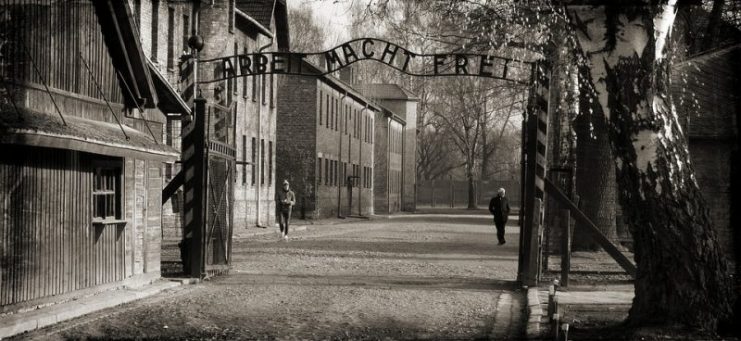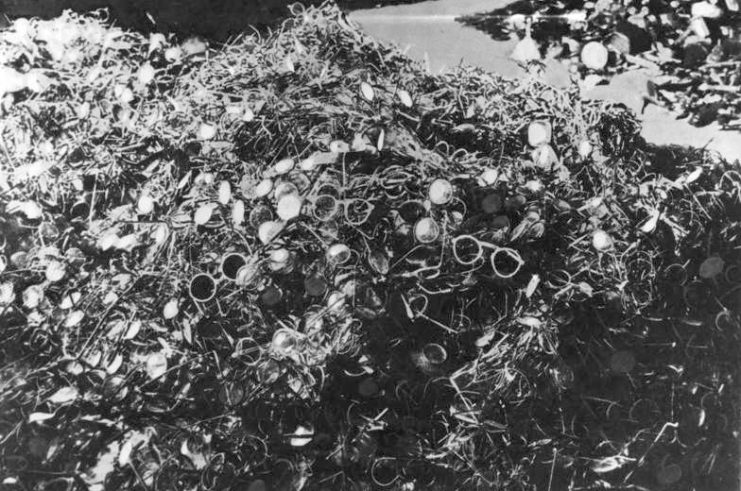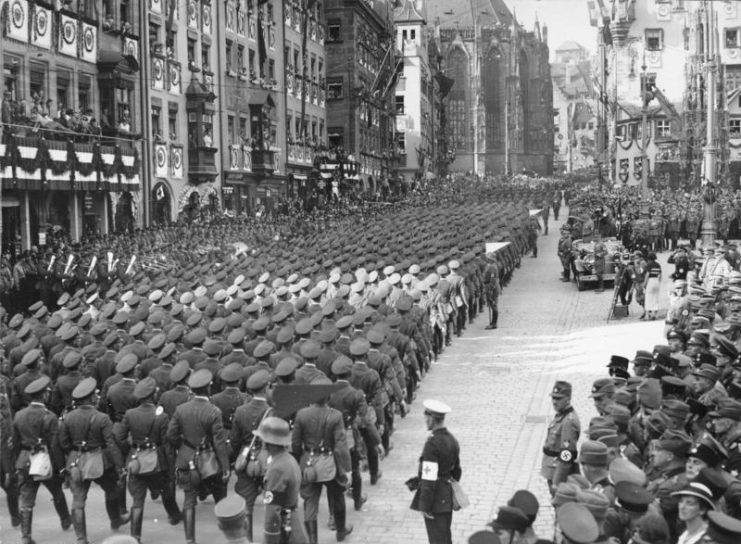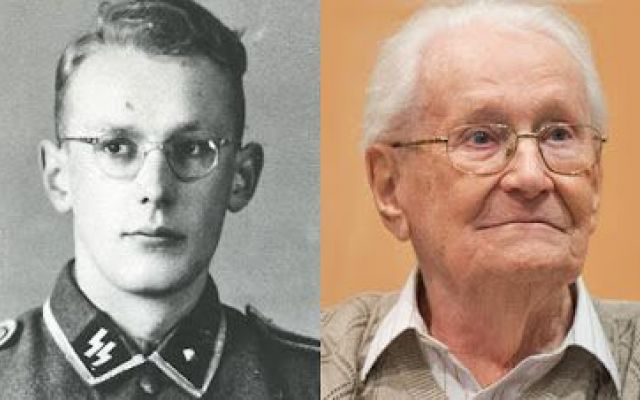Since the end of World War II, most of the Nazi soldiers who were assigned to death camps have passed away but a few, now in their nineties, are being held responsible for their actions over seventy years ago.
The latest, Oskar Groening- the former “bookkeeper of Auschwitz”, has petitioned the court for leniency to keep from having to serve four years in a German prison for his role as an accessory to murder for the deaths of about three hundred thousand Jews, Poles, Soviet prisoners of war, the disabled, homosexuals and anyone deemed unfit by the Nazis.
Unlike most others who participated in Nazi atrocities, Groening has admitted his role at the Auschwitz death camp as the person who was in charge of collecting the possessions of prisoners brought to the camp. He separated jewelry, watches and other valuables from the cash money and made sure it was all properly sent to Berlin.
He was also a witness to the decisions about which prisoners were kept for work detail and which prisoners went to the gas chambers. He maintains that because he never actually killed anyone he is guilty of only “moral” crimes and speaking to the judge during his trial he remarked, “I ask for forgiveness. I share morally in the guilt but whether I am guilty under criminal law, you will have to decide.”
Little sympathy was shown on the faces of the four death camp survivors in the audience. Auschwitz survivor Hedy Bohm told Reuter’s news, “What I hope to hear is that aiding in the killing machinery is going to be considered as a crime so then no one in the future can do what he did and claim innocence.”

After the Nürnberg Trials from 1945 to 1949 most former death camp workers continued to live normal lives until the 2011 trial of John Demjanjuk, a Nazi death camp guard living in Cleveland, Ohio. Demjanjuk was convicted after several trials but died soon after. He continually denied involvement and remained defiant; even attempting to fake extreme frailty by being brought to court in wheelchairs and a gurney until it was proven he was perfectly able to walk outside of the courtroom.
Because of the precedent set in the Demjanjuk trials, other participants are now being hunted down and put on trial for their crimes. According to National Geographic, Nazi criminals deported from foreign countries to be prosecuted in Germany weren’t convicted unless there was clear evidence they committed a specific crime against a particular victim. Since then, the laws have broadened to include those who worked at a death camp or witnessed mass murders by Nazis.

Groening was at Auschwitz in 1944 when he was twenty-one. He had voluntarily joined the Hitler Youth Group progressing on to the Waffen Schutzstaffel, an elite group of SS members created by Heinrich Himmler in 1939 based on racial purity. He was raised by his father who was one of many Germans who lived through World War I and disapproved of the Treaty of Versailles and its inability to address the defeated Germany’s social and financial issues.
At the time Groening, as well as other Germans, were told there was a Jewish conspiracy to destroy Germans which caused him to believe killing Jews was a matter of self-defense. He did not acknowledge his part in the Nazi party until he became aware of conspiracy theorists denying the Holocaust ever happened. He participated in a 2005 BBC documentary, Auschwitz: the Nazis and the “Final Solution”.

Some believe that the former Nazis being prosecuted at advanced ages of eighty and ninety is wrong but according to Efraim Zuroff, the Chief Nazi Hunter for the Simon Wiesenthal Center and author of Operation Last Chance: One Man’s Quest to Bring Nazi Criminals to Justice, “The passage of time in no way diminishes the guilt of the killers. Old age should not provide protection. The fact that they have reached an elderly age does not turn them into righteous gentiles.”
Zuroff and his team have discovered fifty former Auschwitz camp guards still living including Hans Lipschis, age 93; Laszlo Csatary, age 98; Vladimir Katriuk and Gerhard Sommer, both in their 90s. Whether or not they will be brought to justice remains to be seen.
Groening’s appeal was rejected on January 17, 2018, and it is expected that the 96-year old will now soon begin his four-year jail sentence.
